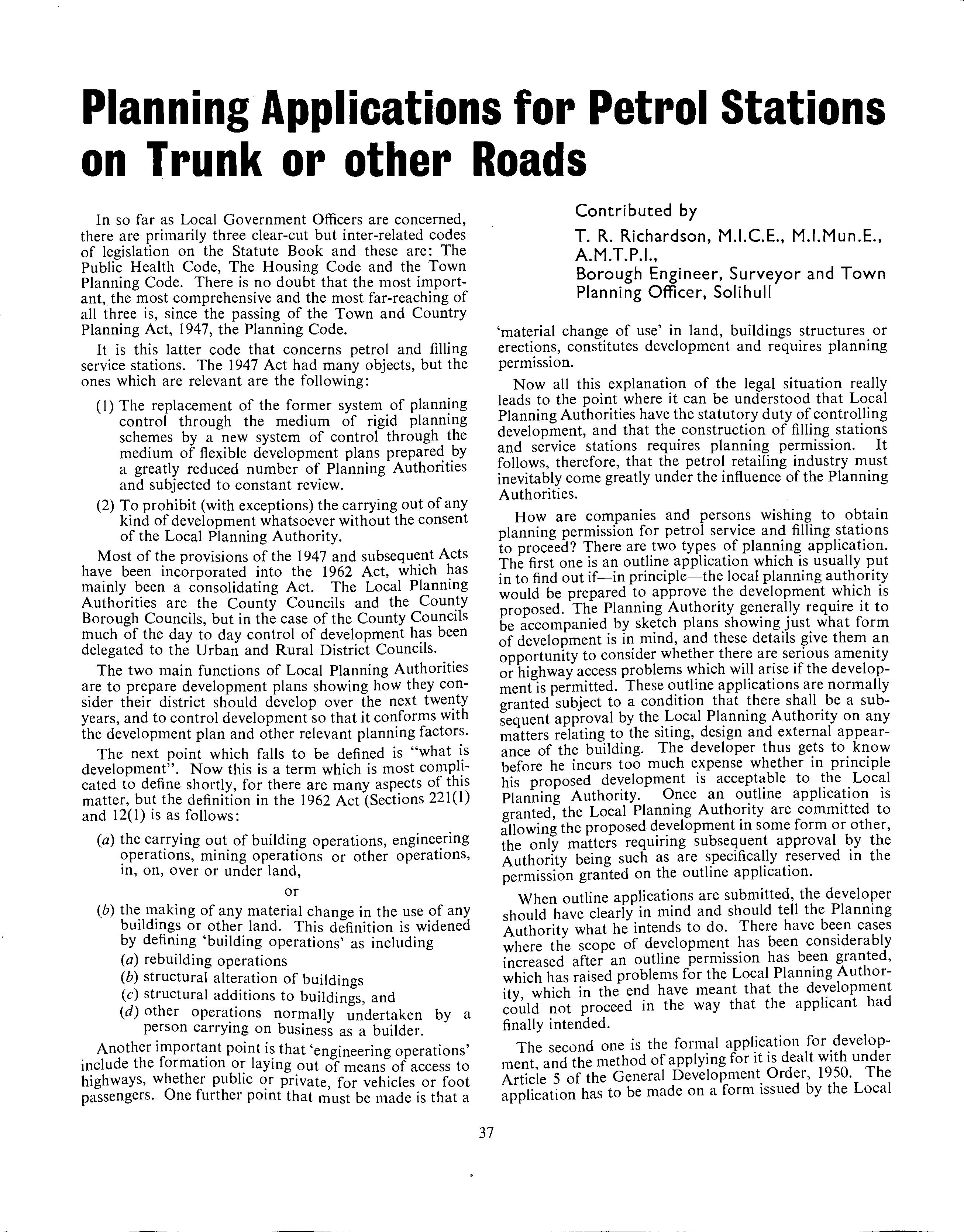
3 minute read
LEGAL PROCEEDINGS
from The Bulletin – April 1966
by apeauk
gulley connected to the interceptor so that there is a show at the gulley before the water seal on both the second and third chambers is broken but in practice this is extremely difficult to arrange.
The seal pipe in the first chamber is shorter than the other two because of the mud and grit which this chamber receives; it avoids the pipe being constantly blocked. If the pipe became blocked it might be possible for liquid to flow from the first to the third chambers through the connected vent pipes without anyone being the wiser. To overcome this, vent pipes have to be joined at a height above ground level at the lowest connected gulley; there will then be a show at that gulley before the interceptor is by-passed.
Advertisement
It would be useful if one could omit the vents altogether but without them the interceptor will not work properly. If the vents terminate at a suitable position in the open air not less than 8 feet above ground there should not be much risk of ignition of retained petrol. The first chamber might find a ventilation path via the inlet pipe and it is therefore important that every gulley connected to an interceptor should be of trapped type.
The inlet pipe to the interceptor has a smaller bore than the outlet pipe and the purpose of this is to prevent possible siphoning of the contents of the third chamber. There are other ways of stopping this siphoning and if these are adopted there is no reason why the pipes should not be of the same size.
KEPT PETROLEUM MIXTURES WITHOUT A LICENCE
On 22nd February, 1966, at Shrewsbury Borough Magistrates Court, a firm of car repairers, D. 0. Jones & Sons, Central Garage, Roushill, Shrewsbury, was fined £10 with £2 10s. Od. costs after they had pleaded guilty to a charge of keeping petroleum spirit without a licence contrary to Section l(i) of the Petroleum (Consolidation) Act, 1928.
On Friday, 3rd December, 1965, a Petroleum Officer visited the premises at Roushill and discovered a quantity of approximately twenty gallons of cellulose paints and thinners in the repair workshop. His interest was further aroused by the fact that opposite and not more than 20 feet away, was a blazing open fire. The firm was advised to remove the thinners immediately to one of their licensed stores in another part of the town.
At Industrial Research Laboratories, Birmingham, a sample taken of the cellulose thinners was proved to be petroleum spirit by testing in an Abel Petroleum Testing Apparatus-the flash point being well below the statutory 73°F.
An interesting point about the case is that if the firm had in fact been licensed for the keeping of petroleum mixtures there would have been multiple infringements of licence conditions. ELECTRICAL GEAR "TOO CLOSE TO PUMPS"
Electrical switchgear that was not flameproof close to petrol pumps might have led to nasty accidents said the prosecution at Wolverhampton when two garage firms were fined for breaches of petroleum regulations.
Cannock Road Garages Ltd., 122 Cannock Road Wolverhampton was fined £15 for contravening the conditions of a licence by having electrical fittings and switches within 20 feet of a place where petrol was stored.
The firm was orded to pay three guineas costs and was also fined £2 each on three summonses for further contraveI_ltions: These were that notices displayed on the premises did not comply with requirements and that the firm failed to ensure that each petrol tank and dip sticks were indelibly marked. They pleaded guilty.
Bertram Edwards Hopcutt of Station Garage 161/163, Horseley Fields, Wolverhampton, was fined a total of £7 with three guineas costs. He pleaded guilty to having electrical fittings within 20 feet of where petrol was stored and to two summonses of failing to ensure that each tank and dip stick was indelibly marked.
EUROPEAN PETROLEUM DISTRIBUTORS LTD.
It is understood that the above company which was convicted of offences under the Petroleum (Consolidation) Act, 1928 (see page 28 of the last issue of the Bulletin) has not entered an appeal to the Divisional Court.
48










